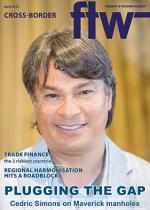The Road Freight Association
(RFA) is currently awaiting
the outcome of an appeal
decision by the Constitutional
Court involving the Cross-Border
Road Transport Agency (C-BRTA).
The agency and the RFA have been
at loggerheads for years over permit
fees, which finally saw the RFA
heading to court last year.
The High Court found that the
substantially increased cross-border
road transport fees instituted by
the C-BRTA in 2011 were invalid as
there had been insufficient public
participation prior to the increase. It
also found that correct processes had
not been followed by the agency prior
to increasing the cross-border fees.
The High Court instructed the
C-BRTA to refund monies paid for
permits on a higher tariff rate and
ruled that operators were only liable
for the tariff rates that existed before
April 2011.
The court at the time suspended
the order of invalidity for six months
for the Minister of Transport to
remedy the situation and publish
the higher tariff rates in the correct
order. This suspension expired
in August 2013 without any new
regulations being published.
While the RFA was calculating the
monies owed to operators that had to
to be paid back as per the judgment,
another dispute arose and the
matter was back in the High Court
where a second judge ruled that the
regulations regarding higher tariffs
were invalid.
“The C-BRTA then headed to
the Constitutional Court where the
matter was heard in February,” said
RFA spokesman Gavin Kelly.
The C-BRTA is arguing that the
full retrospective order granted by
the High Court – in which it has
to pay back all monies charged at
a higher tariff rate – will not be in
the public interest as its financial
position is worsening and this will in
fact have a crippling effect.
Whilst the case is between the
Central African Road Services (Cars)
and the C-BRTA, the RFA is a friend
of the court and
is in support
of the full
retrospective
effect.
Kelly said
regardless of the
Constititutional Court
finding in favour or not
of the full retrospective
the case would have far
reaching effects and
consequences.
“It is about the
tariff rate and the
amounts that have
to be paid back or not, but in actual
fact the bigger concern has been the
process involved in determining the
tariffs,” he said.
Squabble over cross-border permit fees unresolved
14 Apr 2015 - by Liesl Venter
0 Comments
Cross-Border 2015

14 Apr 2015
14 Apr 2015
14 Apr 2015
14 Apr 2015
14 Apr 2015
14 Apr 2015
14 Apr 2015
14 Apr 2015
Border Beat
Featured Jobs
New
New
New
